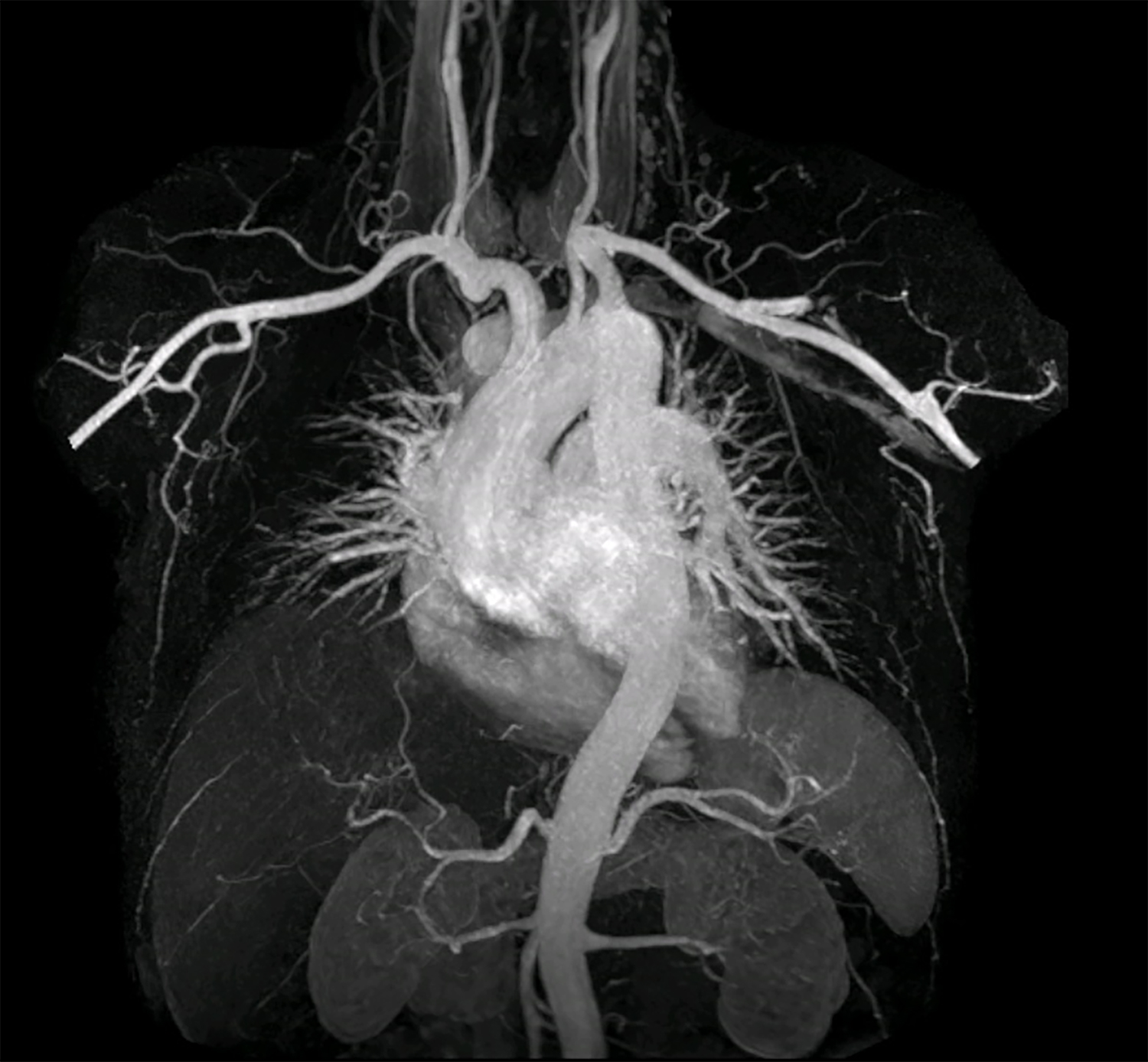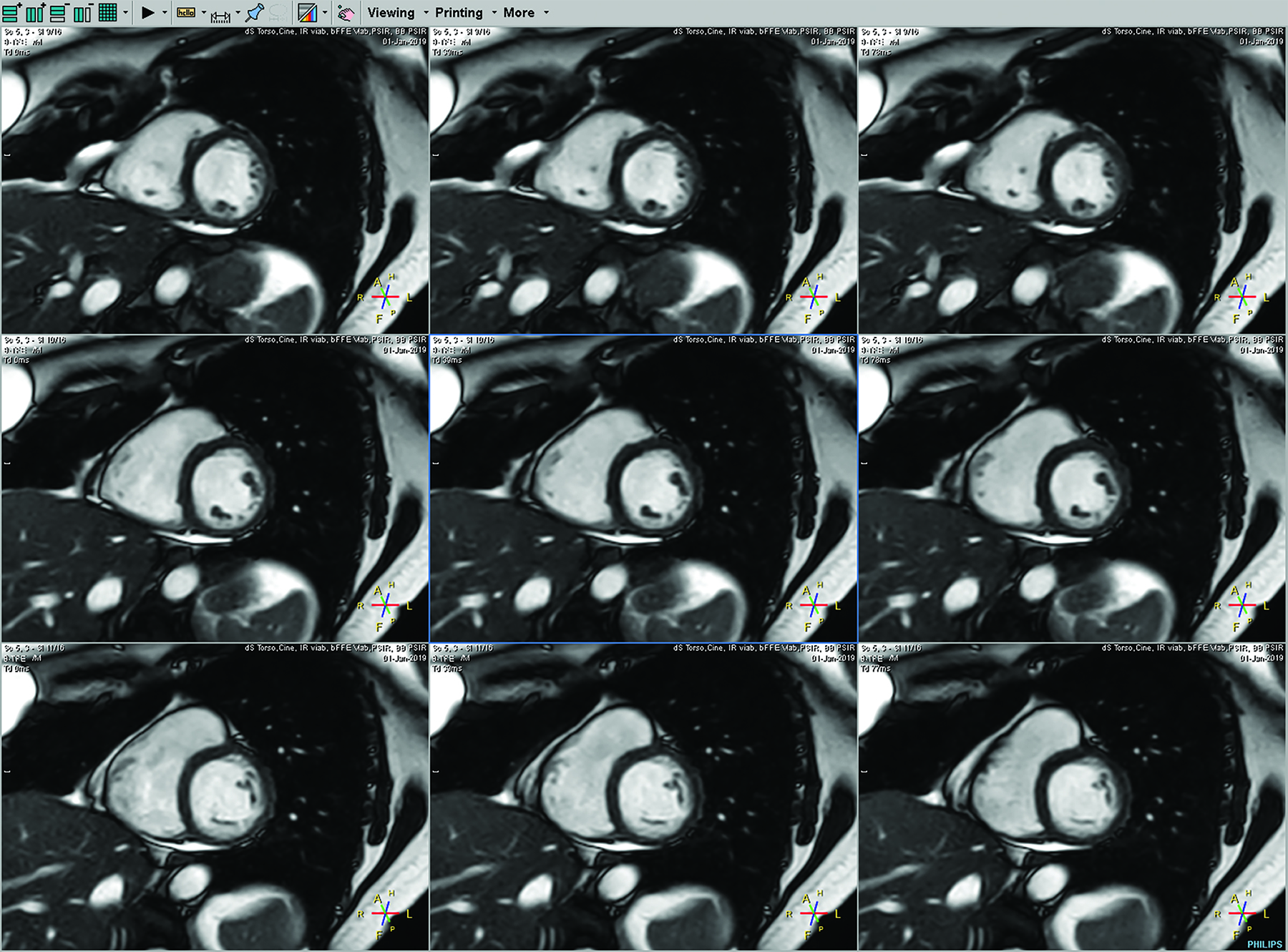Ingenia Ambition MRI: Pioneering Cardiovascular Imaging


Supplement to November-December 2019 Applied Radiology. Sponsored by Philips Healthcare.
An estimated 92 million U.S. adults suffer from at least one type of cardiovascular disease (CVD), and by 2030, around 44 percent of the U.S. adult population is expected to have some form of CVD.1 Miami Cardiac & Vascular Institute (the Institute) is uniquely positioned to meet this rising demand for care with cutting-edge techniques and superior technologies, supporting a vision that’s resulted in the Institute becoming a leader in cardiovascular care. As part of Baptist Health South Florida, the Institute is providing patients with comprehensive cardiovascular services, top-tier clinical expertise, a visionary leadership team, and access to new technologies, such as Philips’ Ingenia Ambition 1.5 Tesla MRI.
Environmentally sound
Given the current shortage of helium — what was thought to be an abundant natural resource, but instead has become notably finite in recent years — MRI operations may sustain profound impacts in the near future. As a result, Philips developed its Ingenia Ambition MRI to run on a closed loop of only 7 liters of helium, which is 99 percent less helium2 than that used by conventional MRI systems and so that no helium can escape.3 The need for complicated venting to safely expel the gas is now eliminated, and the magnet does not require refilling with helium during its lifetime, potentially saving installation costs, and system downtime costs related to interruptions to MR services that can result from helium issues. These important changes offer providers additional installation location options for the MRI within a hospital to help improve workflows.
Carol Melvin, Chief Operations Officer at the Institute, was eager to speak about the importance of the new system for the Institute’s future.
“We’re very proud of our cardiovascular MRI program, and when we had the opportunity to replace our existing equipment and purchase the new Ingenia Ambition, we were very excited,” Ms. Melvin says. “Not only because we felt that the image quality would be enhanced, but also for the important environmental aspect as it relates to the helium. It’s very encouraging to have a machine where we won’t have to worry about resource scarcity and how to mitigate that in the future.”
Leading-edge cardiovascular MRI
In addition to the highly desirable environmental aspect of the Ingenia Ambition, the MRI system has also proven valuable to the Institute’s clinical team because of its power and ability to image faster4 using Compressed SENSE technology. Clinical providers at the Institute depend on the latest MRI technology to visualize not only the heart, but also the blood vessels, to provide comprehensive cardiovascular care. “We can actually see the blood traveling through the system over time. All of these are benefits of MRI,” says Constantino Pena, MD, FSIR, FAHA, FSCCT, Medical Director of Vascular Imaging at Baptist Health South Florida .
“It’s state-of-the-art technology. It uses compressive technology that allows us to use the magnetic field to either maximize the quality of our image or the speed of our image acquisitions. So, if we’re imaging someone’s heart and they’re not able to hold their breath very long, we’re able to minimize the time needed to take that picture. It can make a significant difference in terms of what the patient may be able to tolerate,” he says.
Compressed SENSE technology has had a significant clinical effect at the Institute. “It has really impacted our diagnostic work by allowing us to change our practice to perform more non-contrast-enhanced sequences. We try to minimize the amount of contrast agent we use, and we’re now able to do that because of the imaging power of the scanner,” Dr. Pena explains.
Ms. Melvin pointed out that not only is the Institute fortunate to have such a powerful system to perform complex studies for patients, it is also fortunate to have a team of highly skilled technologists who can take advantage of the capabilities of the new MRI scanner. “Having that kind of expertise is extremely important when it comes to the sophisticated types of studies that we do from a cardiac and vascular standpoint,” she says.
Upon installation, the Ingenia Ambition was coupled with Philips’ Ambient Experience to increase patient comfort and lower patient stress. Philips’ Ambient Experience is an approach to clinical environment design aimed at improving both the patient and staff experience. It incorporates dynamic lighting, projection, and sound to provide positive distractions for patients and an engaging environment to benefit quality of care.
“It’s about the whole feeling the patient gets in the magnet. The patient feels very comfortable and I think that’s extremely helpful,” explains Dr. Pena.
Future ready
The Institute at Baptist Health South Florida has a long history of working with Philips and the team recognizes Philips’ commitment to their mission.
“Philips is always looking at ways to help us improve,” says Ms. Melvin. “It’s a great partnership in that both organization’s goals are to provide the best quality health care that we can to our community. Philips really understands this and provides input to help us better serve our community from a care standpoint.”
Ms. Melvin says the teams are comfortable challenging each other because of their long-standing relationship. “We don’t let them rest on their laurels, so to speak, nor do they let us. They are proactive in terms of innovation and are very reactive when it comes to taking our constructive input.” The result of such communication can be seen in many of the products developed collaboratively between Philips and its customers.
From an equipment standpoint, Ms. Melvin says, while not all healthcare organizations are able to have a dedicated MRI for cardiac and vascular imaging, they still need to be looking at technology that meets their needs from a broader perspective, including the environmental standpoint, and how it may affect their future costs and ability to provide services.
- https://www.ahajournals.org/doi/10.1161/JAHA.119.012364.
- Compared to the Ingenia 1.5T ZBO magnet.
- Even in the rare case of the magnet becoming unsealed, the negligible amount of helium escaping would not materially affect the oxygen in the room.
- Compared to Philips scans without Compressed SENSE.
